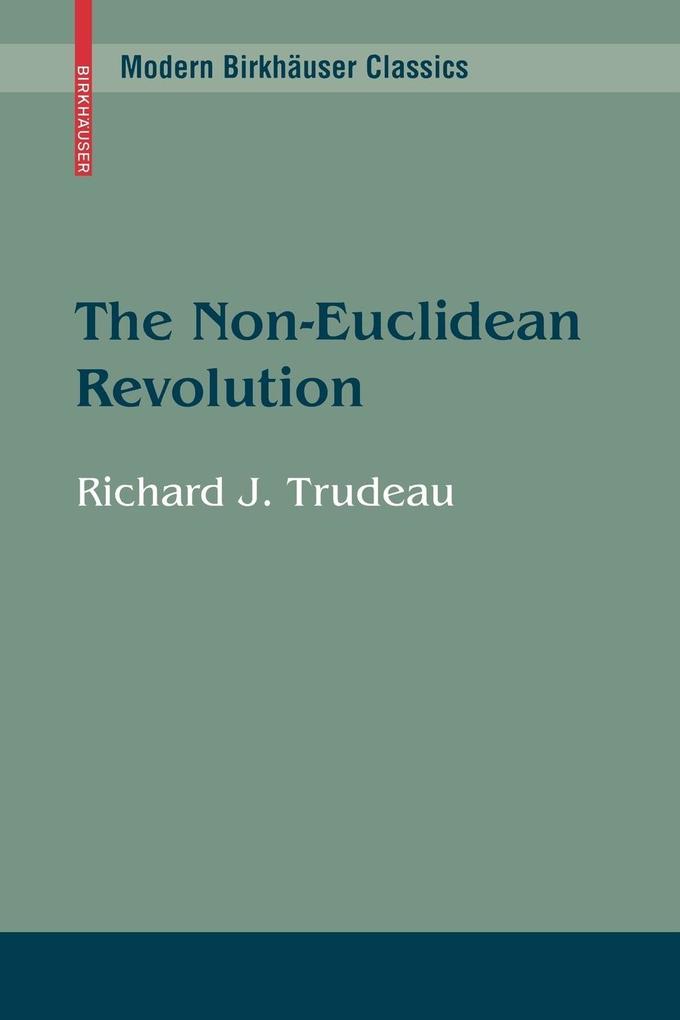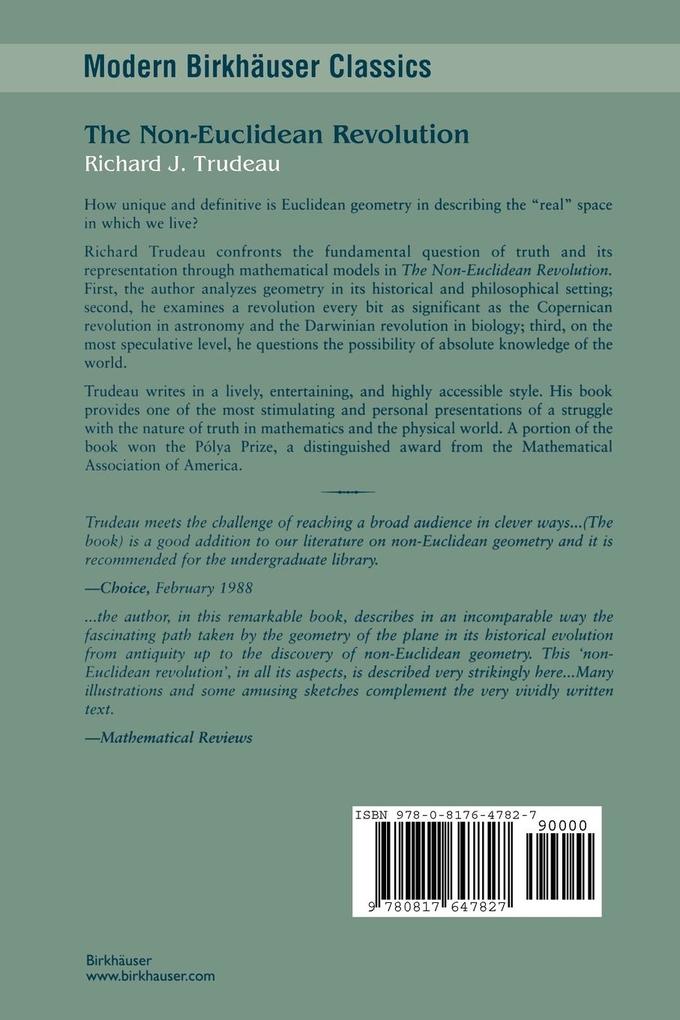In a lively, entertaining and highly accessible style, Richard Trudeau's book provides one of the most stimulating and personal presentations of a struggle with the nature of truth in mathematics and the physical world.
Richard Trudeau confronts the fundamental question of truth and its representation through mathematical models in The Non-Euclidean Revolution. First, the author analyzes geometry in its historical and philosophical setting; second, he examines a revolution every bit as significant as the Copernican revolution in astronomy and the Darwinian revolution in biology; third, on the most speculative level, he questions the possibility of absolute knowledge of the world.
A portion of the book won the Pólya Prize, a distinguished award from the Mathematical Association of America.
". . . the author, in this remarkable book, describes in an incomparable way the fascinating path taken by the geometry of the plane in its historical evolution from antiquity up to the discovery of non-Euclidean geometry. This 'non-Euclidean revolution', in all its aspects, is described very strikingly here. . . Many illustrations and some amusing sketches complement the very vividly written text."
Mathematical Reviews
Inhaltsverzeichnis
Preface. - Introduction. - First Things. - Euclidean Geometry. - Geometry and the Diamond Theory of Truth. - The Problem with Postulate 5. - The Possibility of Non-Euclidean Geometry. - Hyperbolic Geometry. - Consistency. - Geometry and the Story Theory of Truth. - Bibliography. - Index.




































